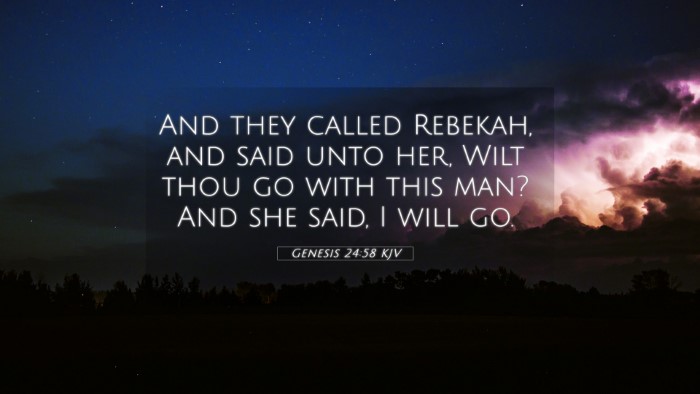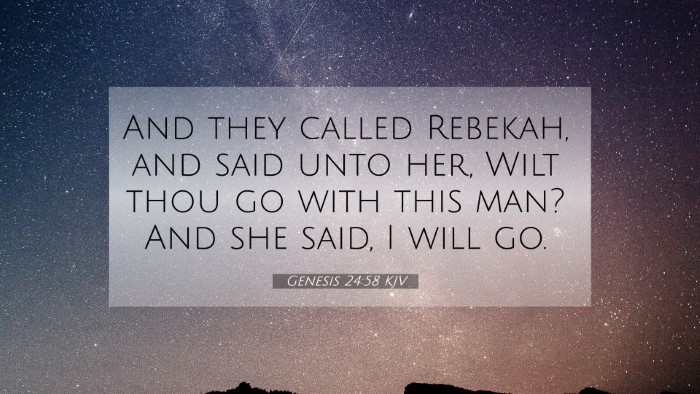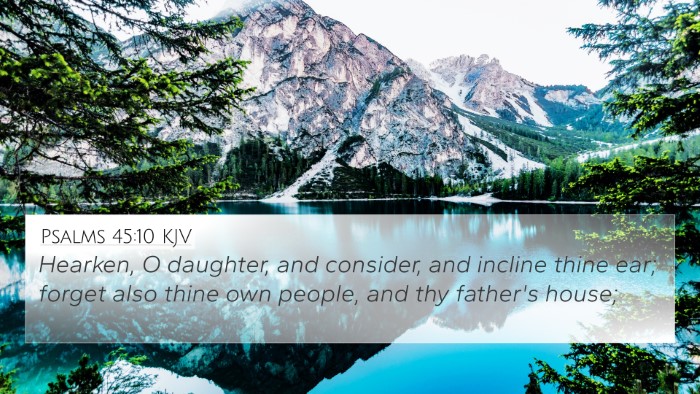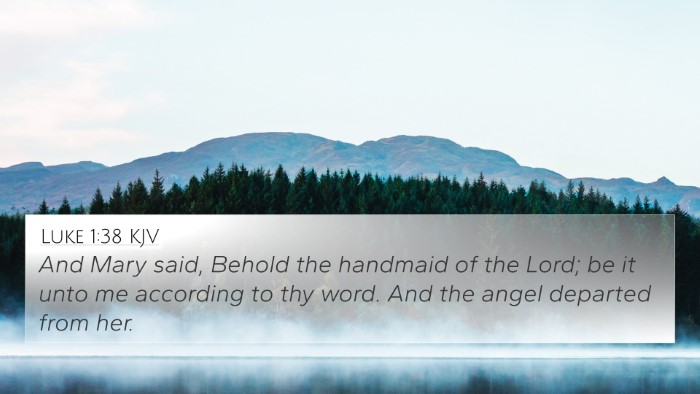Understanding Genesis 24:58: Insights and Interpretations
Genesis 24:58 states: "And they called Rebekah, and said unto her, Wilt thou go with this man? And she said, I will go." This verse stands as a pivotal moment in the narrative of Abraham's servant seeking a wife for Isaac. It encapsulates themes of choice, obedience, and divine providence.
Verse Context and Summary
In Genesis chapter 24, Abraham desires a wife for his son Isaac, instructing his servant to find a suitable partner from his own kindred rather than from the Canaanites. The servant, guided by a prayer for divine direction, encounters Rebekah at a well and recognizes her as the answer to his prayer. The call to Rebekah by her family to make a decision about following the servant signifies a crucial intersection of faith and family.
Thematic Analysis
- Decision-making in Faith: Rebekah’s consent reflects a profound act of faith, stepping into a new life based on trust in God’s overarching plan.
- Divine Guidance: The successful search for Isaac’s wife illustrates God’s providential guidance and the importance of seeking His will in decisions.
- Family and Community Dynamics: The input from Rebekah’s family shows the social context in which personal decisions were made, emphasizing the communal aspect of marriage.
Bible Cross-References
Genesis 24:58 can be cross-referenced with several other scriptures that enhance its understanding and themes:
- 1 Corinthians 7:39: An emphasis on marrying "only in the Lord," paralleling Rebekah’s selection as a suitable match.
- Proverbs 3:5-6: Trusting in the Lord for guidance, akin to how the servant prayed for direction in his quest.
- Genesis 12:1-3: God’s promise to Abraham regarding descendants and nations is interwoven in the covenant that Isaac is part of.
- Ruth 1:16: Ruth's declaration to Naomi resonates with Rebekah's commitment, showcasing loyalty and life-changing decisions.
- Matthew 1:2-3: The lineage of Abraham highlighted in the genealogy of Christ, showing the fulfillment of God’s promises.
- Acts 1:14: The early apostles’ unified prayer reflects the communal seeking of God’s will, resonating with Rebekah’s family’s participation.
- Romans 8:28: Assurance that all things work together for good echoes the overarching divine plan evident in this narrative.
Additional Insights from Commentaries
Matthew Henry notes that this verse indicates Rebekah’s readiness to follow divine calling, illustrating the importance of willingness in fulfilling God's plan for our lives.
Albert Barnes emphasizes the idea of sacred vows in marriage, reflecting how Rebekah’s choice not only affects her life but also the lineage of a covenantal family.
Adam Clarke points out the cultural implications of Rebekah's choice, noting the significance of covenantal relationships and their establishment through divine appointment.
Practical Applications
- Seeking God’s Direction: Just as the servant did, we are encouraged to pray earnestly for God’s guidance in our personal decisions.
- Making Faith-Based Choices: Rebekah's decision can inspire individuals to consider deeper implications and divine purposes behind their choices.
- Understanding Family Influence: Observing the role of family can lead us to appreciate the historical and relational context in our own decision-making.
Conclusion
Genesis 24:58 is rich with themes of faith, choice, and divine guidance. By examining this verse through various lenses, including cross-references to related scriptures, we gain a deeper understanding of its significance within the broader narrative of the Bible. This analysis not only serves as an educational resource but also invites readers to explore the intricate connections throughout scripture.




